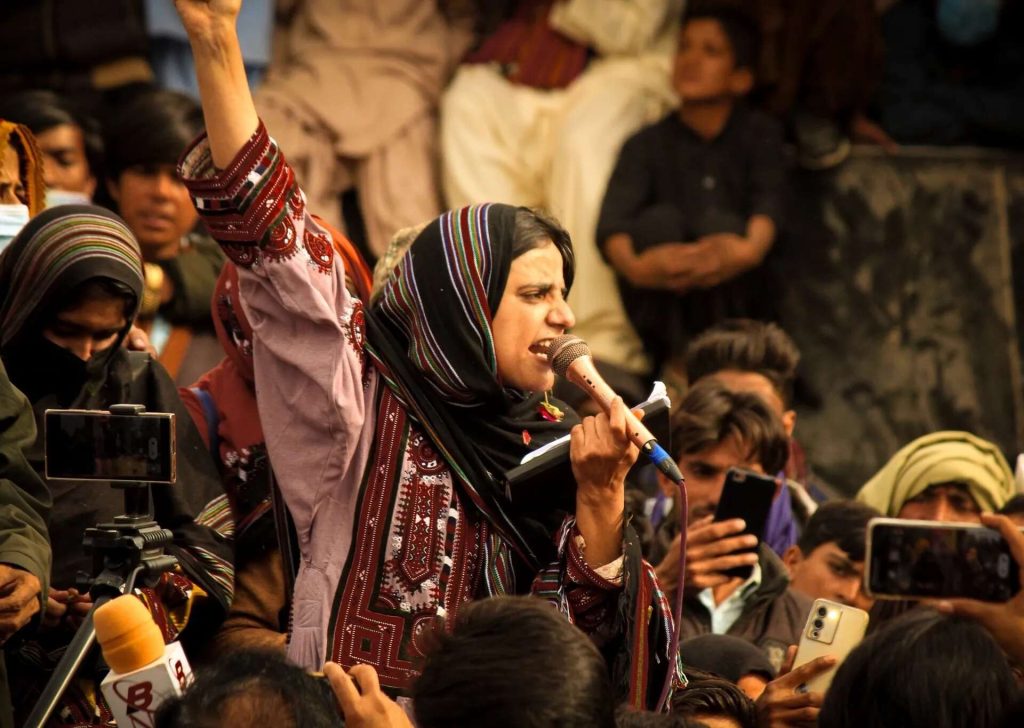The Baloch Yakjehti Committee (BYC) recently made headlines with a controversial statement that pays tribute to Baloch separatists, whom they described as martyrs for their sacrifice in the fight for Baloch identity and independence. According to the statement, these militants have played a fundamental role in fostering social change and development within Baloch society, asserting that their resistance is essential for the survival of the Baloch people. While the committee’s statement may resonate with some factions within the Baloch nationalist movement, it raises serious questions about its implications for Pakistan’s national unity, peace, and the future of Balochistan.
Glorification of Violence and Terrorism
At the core of the Baloch Yakjehti Committee’s statement is the veneration of individuals who are engaged in violent acts against the state. By calling these militants “martyrs” and attributing their deaths to a noble cause, the committee appears to legitimize terrorism as a means of political expression. The term “martyr” historically connotes someone who sacrifices their life for a righteous cause, but in the context of the ongoing insurgency in Balochistan, it seems to elevate those who engage in violence, often targeting innocent civilians, security forces, and public infrastructure.
These militants, far from being agents of positive social change, have destabilized the region and caused immense harm to Baloch civilians, who are caught in the crossfire of a conflict that often has little to do with their day-to-day lives. Many of the acts attributed to these insurgents involve bombings, attacks on security checkpoints, and abductions, all of which contribute to fear, displacement, and loss of life. The committee’s portrayal of these individuals as heroes does a disservice to the real sacrifices made by ordinary Baloch citizens who seek peace, stability, and prosperity.
Divisiveness and Disregard for National Unity
The Baloch Yakjehti Committee’s statement represents a narrow and separatist viewpoint that undermines the broader aspirations of the people of Balochistan. Endorsing separatism as the solution only deepens the divides between Balochistan and the rest of Pakistan.
It is crucial to recognize that the overwhelming majority of Baloch citizens do not support the idea of violent separatism. The push for a separate Balochistan is not universally shared, and many Baloch people are engaged in constructive efforts to address their issues within the framework of Pakistan. There are a number of Baloch political leaders, civil society groups, and youth organizations that advocate for peaceful means of resolving Balochistan’s problems, such as political dialogue, economic inclusion, and greater cultural autonomy.
By elevating the cause of separatists who advocate for the breakup of Pakistan, the Baloch Yakjehti Committee is fostering a dangerous narrative that could lead to further alienation and discord. Instead of promoting unity, peace, and reconciliation, it is deepening the rift between Balochistan and the federal government, pushing the region toward more conflict and instability.
Misleading Claims of “Social Change”
One of the most problematic aspects of the BYC’s statement is the assertion that Baloch separatists have played a “fundamental role in social change and development” in Baloch society. This is a deeply flawed narrative that overlooks the destructive consequences of insurgency and violence. Balochistan, like many parts of Pakistan, faces significant challenges—poverty, underdevelopment, lack of basic infrastructure, and poor access to education and healthcare. However, the separatist insurgency has done little to improve these conditions; if anything, it has exacerbated them.
Instead of focusing on violence and division, real social change in Balochistan must be driven by efforts to uplift the region through political engagement, economic investment, and social reform. The government’s efforts, despite their shortcomings, to build infrastructure, improve education, and expand healthcare services in the region should not be overshadowed by the violent acts of militants who undermine these efforts.
The Role of the Pakistani State in Addressing Baloch Grievances
While it is important to address the genuine concerns of the Baloch people, glorifying violence as a solution is not the answer. The Baloch Yakjehti Committee’s statement fails to recognize the importance of dialogue and peaceful means of resolution. The Pakistani state, despite its flaws, has a responsibility to address the long-standing grievances of the Baloch population. This includes improving governance, providing economic opportunities, ensuring greater political autonomy, and respecting human rights.
At the same time, it is equally crucial for all Baloch political factions to engage in constructive dialogue with the government, rather than resorting to violence and creating further division. National unity is essential for the stability of Pakistan as a whole, and this includes acknowledging the diversity of identities and aspirations within the country. The quest for Baloch identity and rights should not be framed in opposition to the integrity of Pakistan.
The Baloch Yakjehti Committee’s statement paying tribute to Baloch separatists and calling them martyrs is a deeply problematic and divisive move that risks further destabilizing Balochistan and perpetuating violence. While the committee’s rhetoric may speak to a particular nationalist faction, it does not represent the views of all Baloch people and disregards the possibility of peaceful coexistence and reform within Pakistan.
Instead of glorifying violence and martyrdom, the Baloch Yakjehti Committee should consider advocating for meaningful political dialogue, the peaceful resolution of Balochistan’s issues, and the promotion of national unity. Balochistan’s future should not be defined by insurgency and separation, but by collaboration, development, and respect for the rights of all its citizens within a united Pakistan.


